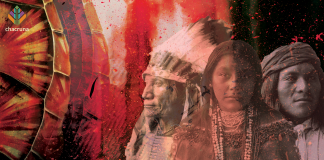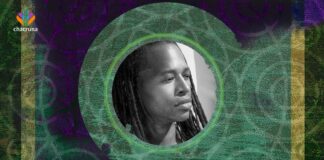Indigenous Reciprocity Initiative of the Americas
Giving Back to Indigenous Communities
Supporting plant medicine by nurturing ecological wellbeing, including land rights activism, bolstering food security, and strengthening economic resilience.
Donate to the...
On Decolonizing and Psychedelics
As he articulates the historical policies and eurochristian worldviews that contribute to the colonization of Native Americans, Roger K. Green writes about how well-intentioned psychonauts who advocate for religious use of psychedelic plant medicines can be implicated in neocolonial actions. Decolonizing means disrupting the politics of recognition, understanding the eurochristian worldviews which shape the political experience for Indigenous people, and overturning policies which have contributed to the ethnocide of Indigenous worldviews.
Coming Together to Raise Awareness of Violence Against Asian Americans
After the mass shooting in Atlanta last Tuesday, the authors wrote this statement to raise awareness of the uprise of violence in the Asian American community. This statement is a call for the psychedelic community to raise awareness and practice intersectionality solidarity in the fight against racism, misogyny, and discrimination.
Decolonizing Psychedelics and Embodied Social Change with Camille Barton
Sean Lawlor interviews Camille Barton, somatic researcher, teacher, and advocate of embodied social change, about psychedelic research, therapy, ancestral dance practices, embedded systems of oppression, decriminalization, the psychedelic shadow, integration, universalism, identity politics, and QAnon’s connection to psychedelics.
Seeking a True Shaman in the Sierra Mazateca
This article explores how the struggle to define what an authentic Mazatec shaman is expresses a conflict about the proper way to consume psilocybes and about the right to make profit from them. Materials published by anthropologists continue to play a role in building the reputation of local shamans who use these mushrooms with tourists.
Blessings of Life and Peyote with Debi Roan
Sean Lawlor interviews Debi Roan, psychedelic educator and holder of Navajo lineage, about the Peyote Way Church, sacred Navajo plant medicine ceremonies, the Salt Lake Psychedelic Therapy Training Program, psilocybin mushroom research at Johns Hopkins, and respectfully bridging indigenous traditions and rituals with Western science.
Using Psychedelic Therapy to Heal Intergenerational Racial Trauma with Dr. Joseph...
Sean Lawlor interviews Joseph McCowan, Psy.D., licensed clinical psychologist and psychotherapist, about how MDMA-assisted psychotherapy can help heal racial and intergenerational trauma, how MAPS’s MDMA training for communities of color impacted his career, embodied trauma, and the lack of inclusion of African Americans and people of color in psychedelic research.
Entheogens, the African Diaspora, and BIPOC communities with Kufikiri Imara
Maria Mocerino interviews Kufikiri Imara, Oakland activist, about Decriminalize Nature Oakland (DNO), bridging the gaps within/out the psychedelic community, access and accessibility to psychedelics for marginalized communities, why he prefers the word “entheogen” to “psychedelics,” and building a BIPOC Entheo-gen Integration Circle with the San Francisco Psychedelic Society.
Is Psychedelic Medicine the Antidote to Anti-Black White Racism in the...
White Americans often struggle with concepts, ideas and understanding about race in America and the role their ancestors played in creating and sustaining systems of racial dominion and oppression. White Americans have been socialized to view North American society and their place in it through the prism of abstract individualism. Embedded within this worldview are a set of organized set of racialized ideas, stereotypes, emotions, and inclinations to discriminate. White frames are an array of white rules, assumptions and knowledge about people of color, in general, and African Americans, in particular. This presentation will focus on teaching courteous white people how to recognize these pervasive ideas in hopes of expanding knowledge and understanding about the salience of race. More importantly, how psychedelic substances could be used to help dominant group members participants cultivate greater empathy and awareness for oppressed people living under the yoke of white supremacy.
Innovating Native American Health Care Using Culture and Technology With Sutton...
Maria Mocerino interviews Sutton King, an afro-indigenous activist that is inno-vating Native health care services and building sustainable businesses for Native and Indigenous peoples. As the former Director of the New York City Federal Ur-ban Indian Health Program, King gives us a inside look at Native American health care, growing up as a Native American activist, the history of Native Americans through the lens of erasure and health care, bringing Natives direct services through Urban Indigenous Collective, and building Shock Talk; an app to con-nect Natives to culture, community, and therapists.














